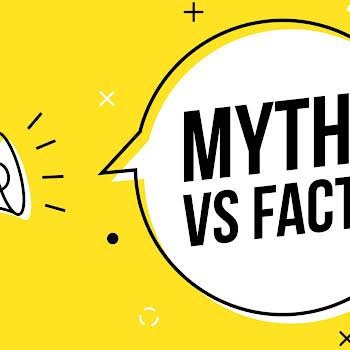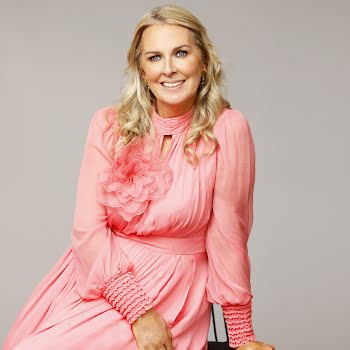Stop talking about the definition of toxic masculinity – and start tackling the problem
By Roe McDermott
17th Nov 2023
17th Nov 2023
Ahead of International Men’s Day on Sunday, Roe McDermott explains the oft-misunderstood idea of toxic masculinity, and how addressing it isn’t about insulting or slandering men – it’s about wanting to protect them from oppressive ideas.
On Sunday, November 19, the world will mark International Men’s Day, and a few years ago, I was asked to speak on a panel about International Men’s Day’s relevance and the conversations it can yield.
One of the topics that I was specifically asked about was toxic masculinity and the damage it can inflict – and, as usual, there was some immediate backlash along the lines of “reverse sexism”, “man-hater”, “feminazi”, etc. Which is really annoying, because I’ve already written that my preferred title is ‘Feminist Killjoy’, thanks very much.
But let’s get this clear once and for all, so we can stop talking about the definition of toxic masculinity – and start actually tackling the problem.
Toxic masculinity is not synonymous with masculinity
Discussing toxic masculinity thus does not mean labelling all men as bad or evil.
Toxic masculinity is not a synonym for masculinity, and does not refer to all men or all expressions of masculinity – not even close. It refers to a limiting, one-dimensional form of gendered behaviour that occurs when expectations of what it means “to be a man” are taken to damaging extremes.
Discussing toxic masculinity thus does not mean labelling all men as bad or evil. On the contrary, addressing the issue is the opposite of hating men – it’s caring about them. It’s highlighting the dangerous and damaging limits that have been placed on men. It’s offering men alternatives to one-dimensional and unfulfilling ideals of masculinity that are often presented to them and forced upon them.
And yes, addressing toxic masculinity can also involve discussing how its dangerous ripple effects can affect women and larger society. But in the spirit of the week that’s in it, let’s focus on how toxic masculinity hurts men, and why dismantling it is about protecting men, too.
What does toxic masculinity mean and how is it enforced?
Emotionally, toxic masculinity prevents men from openly expressing emotions other than anger
Toxic masculinity is a set of beliefs and behaviours based on the idea that ‘real’ masculinity relies on dominance, and through this dominance is separated from anything traditionally deemed feminine – femininity being viewed as weak and undesirable. The dominance that toxic masculinity demands can impact particular aspects of a man’s life, or all of them; social, physical, professional, financial, emotional and sexual.
Socially, toxic masculinity demands that men always assume the “alpha” position in social settings, approaching relationships with other men with distrust, competitiveness, and a lack of vulnerability. This desire to assert themselves socially can often tie into ideals of male physicality, as men are encouraged to either change their bodies to make them bigger, or merely to take up as much space with their body as possible. Physically asserting oneself in an aggressive or intimidating manner or acting violently is thus a by-product of how toxic masculinity affects men, as they are encouraged to prove their physical dominance.
Professionally and financially, toxic masculinity can cause men to believe that a huge proportion of their self-worth is dependent on achieving a powerful status, through their professional position and the accumulation of wealth.
Emotionally, toxic masculinity prevents men from openly expressing emotions other than anger, as any other emotions are assumed to be feminine, and therefore weak. This means that men are prevented from speaking about vulnerability, sadness, stress, or even from openly expressing positive emotions such as love and happiness, unless they’re expressed in a suitably macho way. (It’s no surprise here that men crying over sports – in either joy or disappointment – is usually allowed, as male competition is one acceptable arena of emotional investment.)
Finally, when it comes to sexual or romantic relationships, or even platonic interactions with women, toxic masculinity asserts that men should always be dominant over women, leading to misogynistic and objectifying beliefs that women are less than men and should be treated as such.
Toxic masculinity demands men reject themselves
Toxic masculinity also hinders men’s abilities to be intimate, and to be understood.
Does all of this sound utterly exhausting and limiting and unhealthy? Of course it does. Having your entire sense of self-worth based on external, competitive measures such as status and dominance couldn’t be anything but.
Not only are these ideas oppressive, but they are also inherently competitive – which means that failure, and the shame of failure, is inherently built into toxic masculinity. Setting up standards of masculinity based on power and dominance ensures that some men and boys will feel like they are failing at “being a real man” compared to other men. And that opens up the possibility that these boys and men will try prove themselves by acting in an aggressive, dominant way over the women in their lives.
But toxic masculinity is also unhealthy because it encourages men to reject essential parts of themselves – vulnerability, emotion, empathy, compassion, open communication. No-one, of any gender, can truly connect to other people without these traits; which means that toxic masculinity also hinders men’s abilities to be intimate, and to be understood.
In The Will To Change: Men, Masculinity and Love, Black feminist scholar bell hooks writes that “the first act of violence that patriarchy demands of males is not violence toward women. Instead patriarchy demands of all males that they engage in acts of psychic self-mutilation, that they kill off the emotional parts of themselves. If an individual is not successful in emotionally crippling himself, he can count on patriarchal men to enact rituals of power that will assault his self-esteem.”
It’s easy to see how this plays out in real life. When we insult men or call them weak for expressing emotion, for crying, for showing vulnerability – for showing their humanity – we are enforcing toxic masculinity. And this psychic mutilation is having real effects of men’s physical and emotional well-being.
The health impacts of toxic masculinity
So with another International Men’s Day coming, it’s time to decide. Do we care about protecting men – or do we care about protecting harmful and oppressive ideas of what men “should” be?
On International Men’s Day, shocking figures and stories were shared addressing the social and emotional crises facing men today. In Ireland, 80% of suicides are men. The numbers of men reporting domestic violence and psychological abuse doubled in 2017 compared to 2016. Of the boys and men who suffer sexual violence, over 96% of them will never report it. Men are the majority victims of violent crime – and violent crime is most commonly committed by men.
Literally all of these problems could be markedly improved if men were discouraged from resorting to violence and aggression, and were encouraged to express their emotions, to admit vulnerability or pain, and to seek support for abuse or mental health problems without the fear of being perceived as weak.
Even less obvious health factors such as stress and physical health can be affected by toxic masculinity, as men are discouraged from taking care of themselves or seeking out medical or psychological help in times of need.
So with another International Men’s Day coming, it’s time to decide. Do we care about protecting men – or do we care about protecting harmful and oppressive ideas of what men “should” be? I know what side I’m on. I wonder if the people who refuse to accept that toxic masculinity is a problem know what they’re protecting – or if they even know what they’re shouting about.























